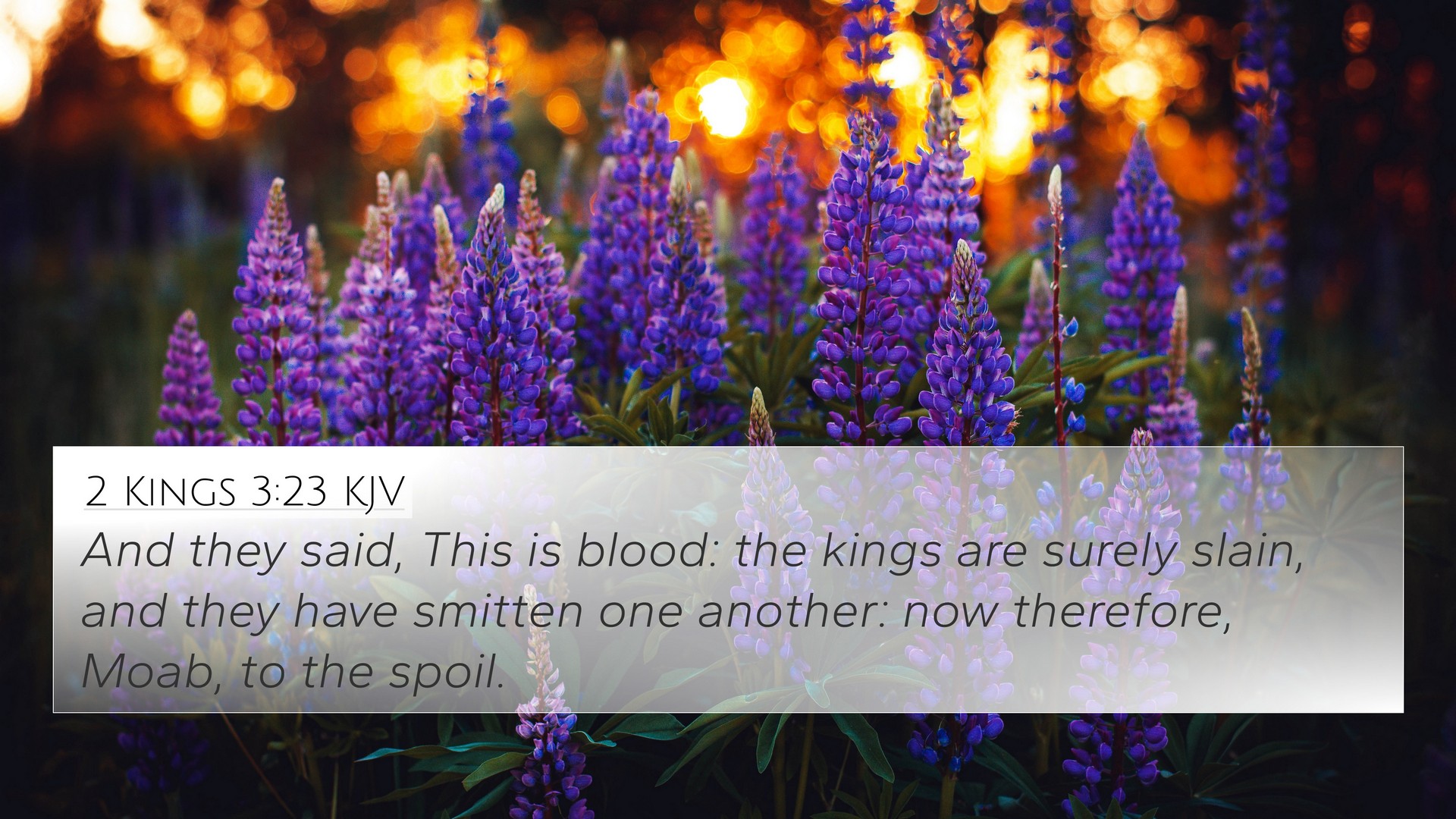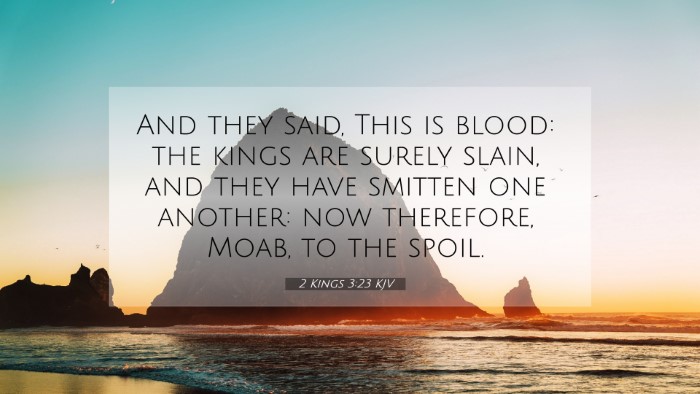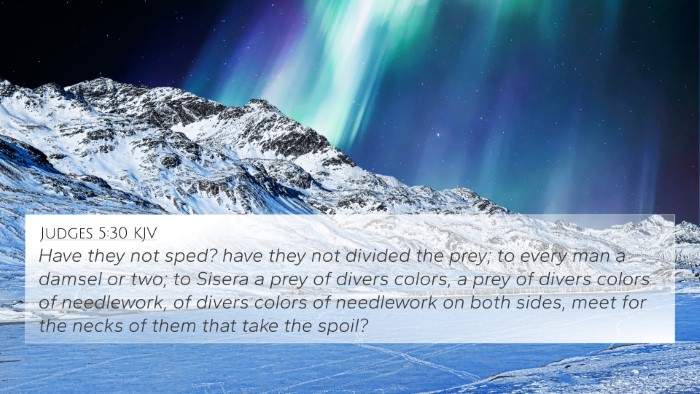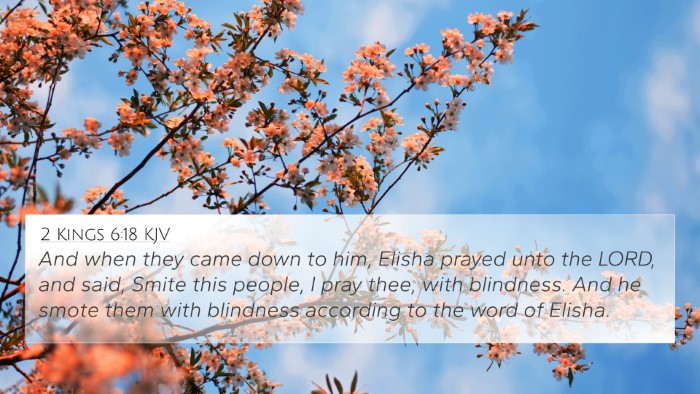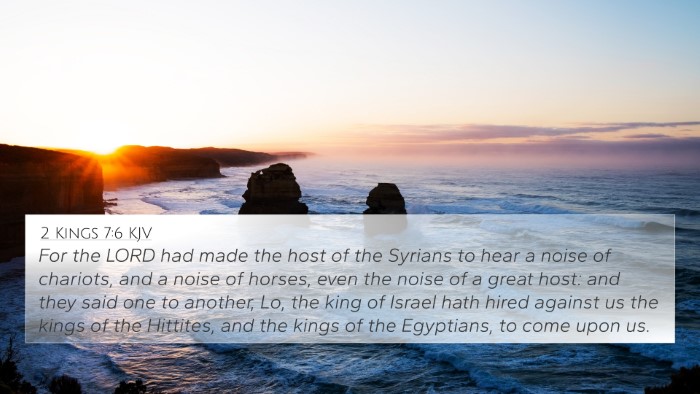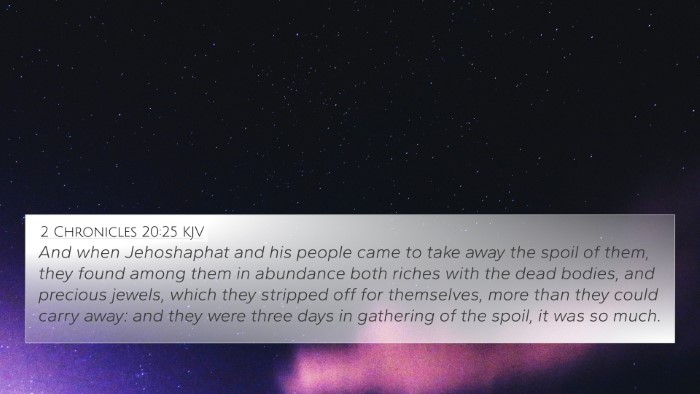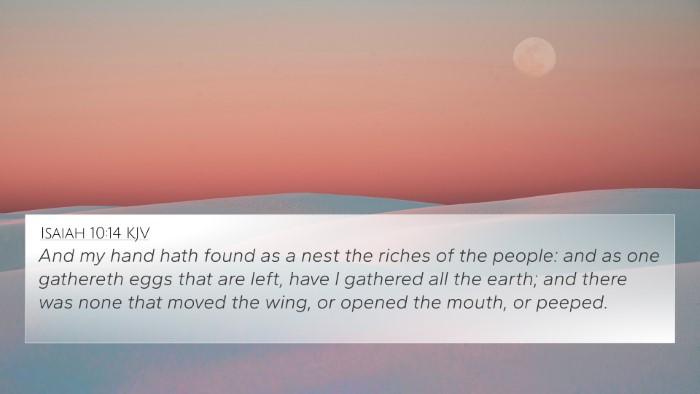Understanding 2 Kings 3:23
Verse Reference: 2 Kings 3:23 (KJV) - "And they said, This is blood; the kings are surely slain: and they have smitten one another: now therefore, Moab, to the spoil!"
Overview of the Passage
In this passage, we find an account of the Moabites' misinterpretation of a scene during battle. The kings of Israel, Judah, and Edom had joined forces against Moab. Upon observing what they believed to be the aftermath of a bloody conflict, the Moabites mistook the sight for their enemies’ defeat, prompting them to follow up on what they assumed would be an easy victory.
Insights from Public Domain Commentaries
Matthew Henry's Commentary
Matthew Henry points out the thematic elements of deception and misunderstanding in this verse. The error made by the Moabites serves as a reminder of how quickly assumptions can lead to folly. Henry emphasizes the spiritual peril of misinterpreting God's actions and how it can lead to disastrous consequences.
Albert Barnes' Notes
Albert Barnes elaborates on the historical and cultural context, underscoring the symbolism of blood in warfare, which often signifies death and defeat. He indicates that the sight of the water mixed with blood may have been misleading, resulting in the Moabites’ folly when they rushed into battle without discernment.
Adam Clarke's Commentary
Adam Clarke offers a detailed linguistic analysis, translating certain terms to illuminate the original meanings. Clarke suggests that the vivid imagery used in this scene serves a dual purpose: to demonstrate God’s powerful hand at work and to illustrate the susceptibility of humanity to misjudgment under duress.
Bible Verse Cross-References
This verse connects to a number of other Biblical passages that highlight similar themes of battle, misunderstanding, and divine intervention:
- 2 Kings 3:20 - This verse describes the miraculous provision of water, emphasizing God's provision even in desperate circumstances.
- 2 Chronicles 20:17 - "Ye shall not need to fight in this battle: set yourselves, stand ye still, and see the salvation of the Lord." This verse highlights the idea that God fights for His people.
- Psalm 135:8-12 - Refers to the plagues and judgments that God brings upon nations, linking the themes of judgment and deliverance.
- Isaiah 19:2 - Discusses misunderstandings in battles and conflicts, showcasing that confusion can stem from divine action.
- Ezekiel 38:21 - Describes God’s intervention in battles, where He causes confusion among the enemy.
- Judges 7:22 - Reference to God using confusion to bring victory to Israel over their enemies.
- Matthew 12:25 - Jesus mentions a kingdom divided against itself cannot stand, illustrating internal discord as a reason for downfall.
Thematic Connections
The themes raised in 2 Kings 3:23 resonate throughout many books of the Bible. They reveal a continuous dialogue about faith, expectation, and divine deliverance:
- Divine Intervention: The ongoing narrative of God stepping in during times of crisis can be seen throughout both the Old and New Testaments.
- Misinterpretation of Signs: Many biblical characters have faced the peril of misjudgment, leading to caution against rash conclusions (e.g., the disciples misunderstanding Jesus' parables).
- Consequences of Assumptions: The folly that arises from assumptions echoes in various stories (e.g., Saul’s sacrifice(1 Samuel 13)).
Conclusion
This verse serves not only as a historical recount of the battle with Moab but also as a significant teaching tool in understanding God's ways and the frequent misinterpretations of human beings. It challenges readers to reflect on their perceptions of divine occurrences and their readiness to follow God's lead. The inclusion of cross-references enriches this exploration, opening pathways to see the interconnections of God’s actions across the Scripture.
Further Study Suggestions
For those interested in deeper study, tools for Bible cross-referencing can provide insight into how various passages relate to 2 Kings 3:23, enhancing one’s understanding of Biblical narratives and thematic elements.
Utilizing a Bible concordance is also an excellent way to discover related verses, providing a broader context for understanding how the themes of misunderstanding and divine intervention resonate throughout the Scripture.
As you engage in cross-reference Bible study, consider keeping a record of insights and themes you discover, as this practice can enrich your learning and devotion.
